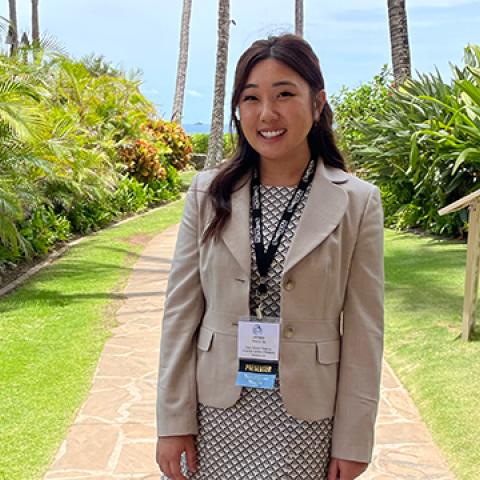Third-year Case Western Reserve University medical student Victoria Wu knows a thing or two about economics. She earned her undergraduate degree from University of Pennsylvania in the subject, and is using that expertise to study financial toxicity and how it affects lymphoma patients. It’s research she will soon present at the American Society of Clinical Oncology (ASCO) Quality Care Symposium.
Wu’s project examines a hot topic in treating early-stage Hodgkin lymphoma— the cost-effectiveness and impact on patients if radiation therapy is omitted.
“We looked at what the patients would pay out-of-pocket instead of traditional cost-effective analyses that look at the hospital payer perspective,” said Wu.
She explains financial toxicity in simple terms.
“It’s thinking about cancer costs from a broad perspective,” said Wu. “Cancer treatments have a cost—but there is so much more involved—lost wages due to time off work, caregiving costs, transportation to treatments and much more. It's the accumulation of these high costs that can create harmful effects on a patient's quality of life.”
Wu will present her lymphoma care abstract at the ASCO symposium in October, but she is also studying financial toxicity and other cancers.
“She will also present breast cancer financial toxicity work at the American Society for Radiation Oncology annual meeting in October, “ said Wu’s mentor, Case Comprehensive Cancer Center member and Assistant Professor Shearwood McClelland III, MD. “It’s the flagship radiation oncology meeting in the U.S.”
The Columbus, Ohio native is enjoying her third year of medical school and the rewarding personal connections she’s formed with patients.
“It’s very meaningful when you talk to patients and hear what they are feeling, as opposed to reading from a textbook,” said Wu. “Oncology is a really personal specialty, but the patients are so open and thankful—even to medical students.”
McClelland says Wu is a shining star.
“When she was a second-year medical student she won a national oncology award from the American Radium Society ahead of medical oncology, surgical oncology and radiation oncology residents,” said McClelland. “That’s unheard of!”
Wu hasn’t determined a specific path after medical school but knows she'd like cancer care to be part of her residency and future career.


